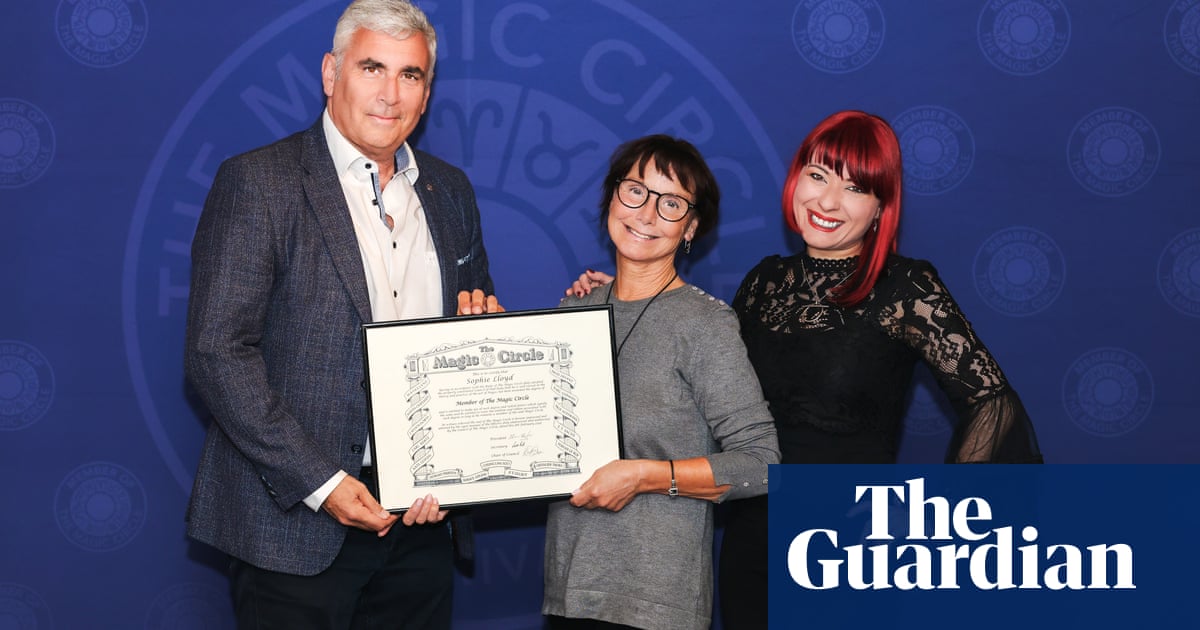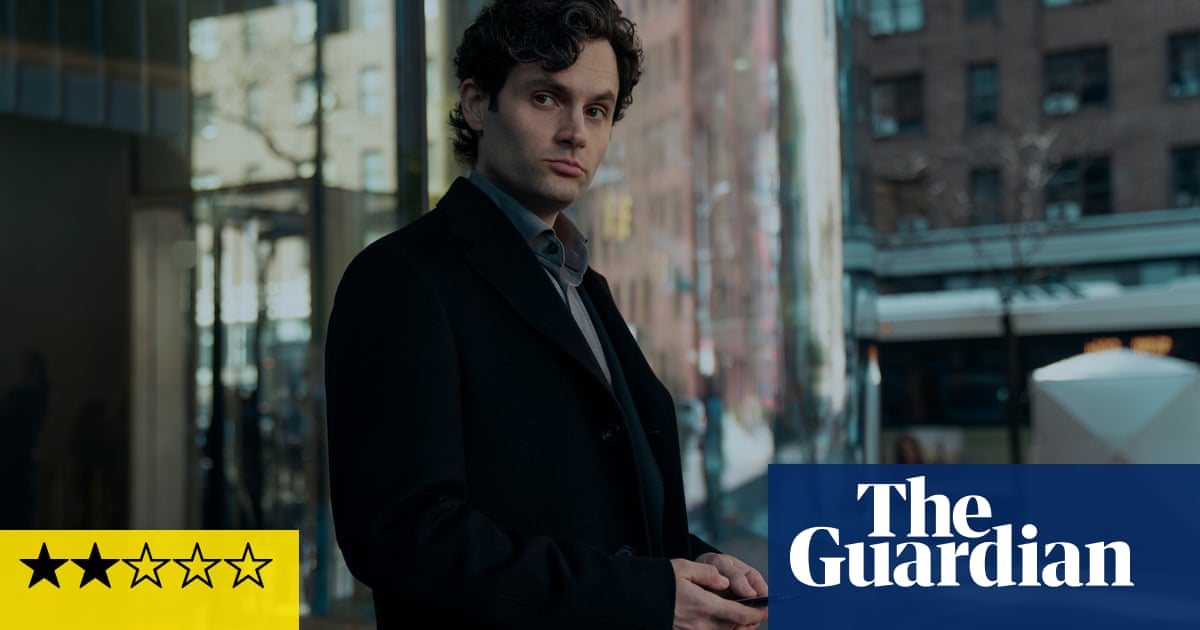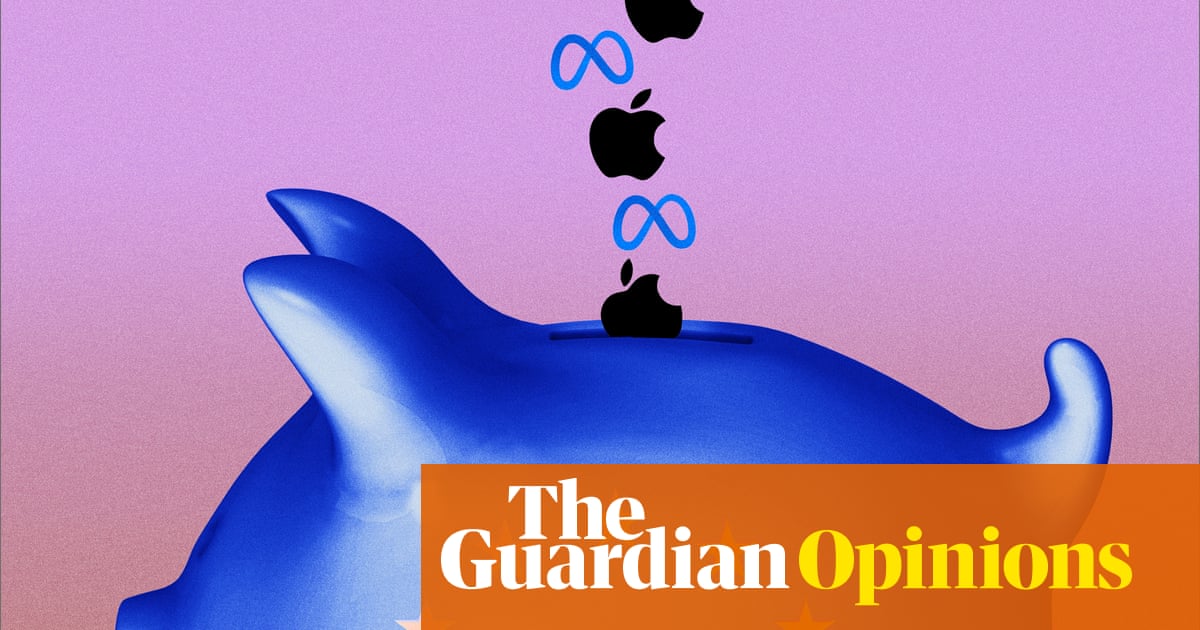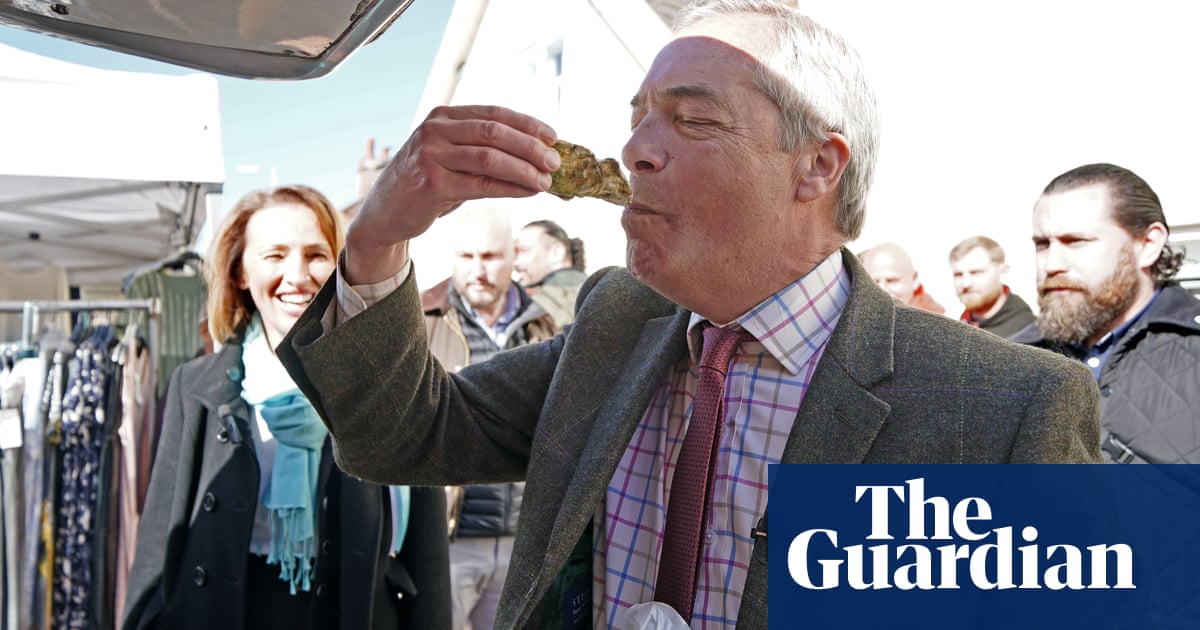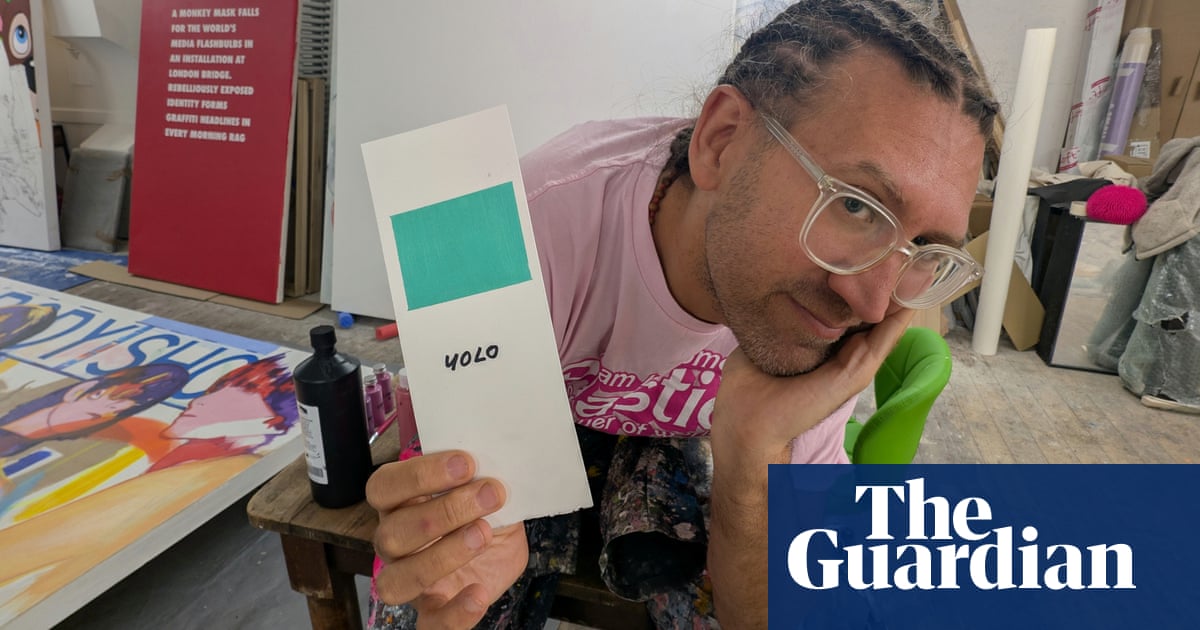The first time Gary Jenkins became a father, in 1995, his priorities changed in an instant. “I was a sales director, on the crest of a wave,” he says. “Becoming a father seemed to complement the full set: the car, the house, the job, the good life.” Holding his new daughter, however, he realised that he had never truly loved anything until that moment. “Suddenly, here I was, plunged into something beyond words, beyond my comprehension.”
When, 21 years later, his second child, a son, was born, everything about that first experience came back to him: the sleepless nights, the nappy technique, the feeling that he had a new vantage point on “the circle of life”. But this time around, fatherhood felt more “visceral”, as he puts it. “The poignancy is much more real. I’m aware that I’m at the end of that loop as another life is coming into it. My time with my son feels much more limited and hence much more precious.”
The principal difference is that the first time he was in his mid-30s and living in Surrey with his first wife, and now he is 66 and living in the Czech Republic with his second wife – and three extra decades of life lessons to draw on. Speaking to me on a video call, Gary looks fit and active, relishing his second chance at fatherhood. He has just spent the morning making an electronics kit with his son, Ben, who is eight. Ben doesn’t know anything about his father’s other family and Gary has no contact with them. After a divorce, he says he lost contact with his daughter. “I’d never experienced anything like it. Suddenly, all of the things that had defined me weren’t there any more. I spun out.”
Ultimately, what this meant was that when he met “the right partner”, many years later, he didn’t hesitate to create the family life he had always wanted. “It was primal. It was a pretty easy thing to do. I asked her if she’d like to have a child. She said yes. And that was that.” There was the matter of his age. But then he read about Mick Jagger fathering another child at 73, and figured he’d be able to cope.
“I was worried about energy levels. I don’t worry about that now,” he says. “I’m more concerned about the limited time I have to impart my love and my lessons for life to my son.”
You may have noticed many older fathers in the public eye, such as Jeff Goldblum, 71, father to Charlie, nine, and River, seven. “I don’t know what’s true across the board, but if you make it this far, I guess you have a perspective that is soul-enhancing,” he said when I interviewed him last year. He’s a spring chicken compared with Robert De Niro, 81, and Al Pacino, 84, who are both parents to toddlers. Rupert Murdoch was 72 when his youngest child, Chloe, 21, was born. Even Donald Trump, 78, is the father of a teenager, Barron, 18, whose insights were apparently crucial in winning the male Gen Z vote.
It’s generally assumed that we live in a monogamous society. Actually, polygamy is common among western elites. The men just do it sequentially, fathering children by many different partners throughout their lives. Mick Jagger has eight children born between 1970 and 2016 to five women. Nor is advanced fatherhood a modern phenomenon. A few years ago, I met the late art historian John Richardson, then in his 90s. He proudly told me that his grandfather had been born in 1812 – a two-century leap that it took me a while to realise was the result of two successive septuagenarian fathers.
We can only guess at how adept Pacino is with the wet wipes. (“I want to be around for this child,” he recently told an interviewer. “And I hope I am.”) But when I spoke to a range of older fathers, they said that the business of fathering has become more hands-on in recent decades – and generally more rewarding, too.

Christopher Ennis, 70, from Kent, says he is much more engaged with Séamus, his one-year-old son by his second wife, than he was able to be with his four older daughters – in part by virtue of being more financially secure. “He is a total joy and has rejuvenated me and my outlook on life,” he says. He is also in the happy position of being able to compare notes with his eldest daughter, 35, who has children of a similar age. “She has tips on the latest kit that I wouldn’t have thought of,” he says. “The baby equipment scene is different. The prams are much more sophisticated. The car seats too. The Tommee Tippee machine for making baby milk (which I call the Tommee Titty). It’s definitely made it all easier.”
Joshua from Indiana in the US had just packed his youngest child off to university when his second wife gave birth to their first child. He was back at the beginning, and discovered a huge difference in parenting philosophies. “With my first two children, I raised them how I had been raised, with yelling, spanking and things my current wife refers to as ‘punitive, authoritarian parenting’,” he says. “My current wife believes in gentle/peaceful parenting, and at first I thought she was full of crap and our two children would end up being entitled brats. But I’m happy to say that they’re now teens and are responsible and respectful. I have since reached out to my adult sons to apologise for how they were raised.”
Paul, 66, also shudders to recall his attitude when his first daughter was born shortly before he landed a well-paid job in New York. “I was highly ambitious at that stage,” he says. “I used to leave for work at 6.30am and get home at 7pm, sometimes later. And to be perfectly frank, I wasn’t shy of going for a drink with my colleagues after work. You’d realise it was eight and think: ‘Ah well, may as well make a proper night of it.’” Now living in the UK with his second wife, he is “much more consciously” trying to be part of his young son’s life. “I look back on what my first wife must have had to put up with, and whether I was a particularly selfish individual, or that was what society was like, I can’t say.”
Indeed, what soon becomes apparent from speaking to these older fathers is that, however much parenting has changed, by far the biggest changes have occurred within the men themselves. Perhaps this is indeed how society changes: from the inside out.
A common theme is that the first time, having a child was “just part of the deal” as one man put it – whereas the second time around, they approach fatherhood with a lot more care.
“I don’t know if I appreciated the whole miracle of it as much the first time around,” says David Bawden, 59, who conceived a child with a second partner 20 years after his first, after several rounds of IVF treatment. “I don’t know if it’s just because it was the 1990s or the noughties and everybody was more relaxed, but maybe we guard life a bit more zealously now. Of course, we all complain vociferously about how little sleep we get, but I’d forgotten in the intervening years what a joy it is.” His own parents are equally delighted. “My father, a nonagenarian with dementia, is bowled over every time I tell him, because he doesn’t remember the previous time I did.”
Young couples often cite housing issues, precarious finances and demanding careers as reasons for delaying parenthood. These are all much less of a problem at the other end of life. Christopher, the baby equipment enthusiast, feels it’s all much easier for him now as he’s financially secure, with two properties and a part-time nanny. “One thing I’ve noticed is that parental stress is dictated by whether you can afford additional assistance or not. Thankfully, we can.”
Then there is the perspective that wisdom can give you. When Tom Wenger’s first two children were born in the mid-1970s, he was in the most intense period of his medical training. “My wife and I talked about 50/50 parenting, but it was semi-ridiculous really,” he says. “I worked 100 hours a week. So just by virtue of the fact that I was extremely busy, I had no time to devote to my children. There are many pictures of me fast asleep with my babies on my shoulder.”

Now 79, having retired from a career as a cardiologist, and living in North Carolina in the US with Lilly, his 16-year-old adopted daughter from his third marriage, he feels he not only has the benefit of time, but also of experience. “I’ve brought up a set of kids who are successful adults. I’ve seen what went right and what went wrong. That’s an incredible set of expertise to be able to bring to raising another child.”
Nevertheless, he says he experiences frequent “momsplaining” from fellow parents at the school gate who doubt what a man born in 1945 could possibly bring to the life of a living, breathing gen Z teen. “If a woman says to me something about how I’m bringing up my daughter, of course I listen,” he says. “It’s only polite and caring. If I hear an idea that seems better than what I’m doing, I’ll grab that in a second. But I keep my own counsel – because I feel like I know what I’m doing.”
There really is no such thing as a typical family. Lives follow unusual shapes; traumatic events intercede; love swoops up stealthily; very few of us are living the life we planned. Tom Wenger is, it turns out, not only a septuagenarian father, but a septuagenarian single father, having lost his third wife to suicide when Lilly was six. “I’m still in good health – heck I still play soccer with guys younger than you,” he tells me. “My worry was that I would die when she was young. I had to worry about getting cancer or having a heart attack or whatever. When my wife died, I knew that my daughter would need to live on her own at a much earlier age than most children.”
As uncommon as late-stage fatherhood is, it is part of a trend. The age of both parents has been increasing steadily for the last 50 years. My mother was 25 when I was born, and recalls being described as an “elderly mother” in the maternity ward. Now that is well below the national average for mothers of 30.9. The average age of fathers, meanwhile, was 33.8 in the UK in 2023. The most recent government data shows 10% of new fathers in the 40-44 age-range and 5.1% aged 45 or over.
after newsletter promotion
Still, while the risks of late-stage motherhood are widely known – the National Institute for Health and Care Excellence does not recommend IVF for women over 42 – there is comparatively little discussion of the risks of late-stage fatherhood. This is a concern to those who work in the field.
“There’s a lot of evidence about the impact of male age on children,” Allan Pacey, a professor of andrology at the University of Manchester, told me when I was researching the rise in “sperm freezing”. “The data has been around for 20 or 30 years. But we tend to ignore it, as it bucks what society wants.”
There is indeed a growing body of research linking older men to a wide range of adverse outcomes, such as a greater likelihood of miscarriage and stillbirths, as well as higher risks of conditions including autism, ADHD, schizophrenia and leukaemia. Children with fathers over 40 at their birth are almost six times more likely to have autism than those whose fathers are under 30, according to one study.
Such risks were largely unknown to Gary Jenkins, whose son is neurodivergent. “It’s a facet of older parenting that I didn’t realise is so prevalent,” he says. Still, he doesn’t think this knowledge would have altered his decision one way or another. “You never know what’s coming. I’ve got a feeling that second chances with children are a lot more common than I thought. I’ve met loads of people who have unusual situations with their kids.”
There are also the emotional risks attached to second-time fatherhood, particularly when it comes to families from earlier relationships. Paul – the man who happily stayed out drinking with colleagues when his daughter was young – did eventually come good as a parent, he assures me. “Don’t get me wrong. Those early years I wasn’t there so much, but when she was older, I was more present. We developed common interests. We’d go to football matches every week and became extremely close.”
They were extremely close, that is, until he told his daughter that he was expecting another child with his second wife, and she cut him off. “My daughter didn’t like that at all. She responded extremely negatively. The justification she gave was: ‘You’re not going to be a proper grandfather to my child if you’ve a child of your own.’ I said: ‘It doesn’t need to be like that. I’ve got plenty of love to go round.’ Unfortunately, it became a self-fulfilling prophecy.”
In all, Paul sounds conflicted about late-life fatherhood. “We’re lucky that we can cope with it physically just about. But mentally, I do struggle. There are times when I feel a bit guilty. Our son doesn’t yet realise that our family is a bit different. My mum died at 87; my dad was 89. The thought that my son will be in his early 20s when he’s dealing with all that … I feel like it’s something I’m putting on him that he wouldn’t necessarily have asked for.”
There’s a lot more anxiety around parenting, too, he says: about the specifics of child rearing (“there are all these books, websites, WhatsApp …”) and about the world in general. “We had the miners’ strikes and the threat of nuclear Armageddon, and a country that was virtually ungovernable and all that – but we just sort of sailed through it. Whereas now, it feels like the world is coming to an end before my son’s even had the chance to grow up. I don’t know if this is something you just feel when you’re getting older – or if the world really is a worse place.”

Tom Wenger, the 79-year-old widower, is in little doubt that things are getting worse. “As someone who was born in the US at the end of the second world war, I’ve just gone through nearly 80 years of the easiest living it is possible to have had for the average non-aristocratic person,” he says. “You can’t find a period in the history of humankind as good. I don’t think the next 80 years are going to be like that for my daughter. I can see war. Civil war. Enormous disruption. Beyond anything we’ve experienced.”
The lesson he has taken from this is that his daughter will need to be able to cope with adversity. “I don’t think that telling children to work well in school and aim for a really good career is going to prepare them for an extremely disruptive world. I went to a private school and my first set of kids went to private school. I used to think that was the most important thing. But when I became a single father with a kid who had gone through emotional trauma, I knew that the most important thing was not to get her academics sorted out, but to get her emotions sorted out.”
Overcoming difficulties is such an important part of growing up, he adds. “It doesn’t mean putting obstacles in people’s way, but it does mean accepting obstacles as a learning experience. So I think I’ve weirdly got a slightly more flexible idea than maybe a thirty- or fortysomething might have about what to expect, because I’ve seen such a spell of history.”
Yet the thing about children is that they have no awareness of history, not at first. They are by their nature extremely present. They force you right into the moment. When I ask Paul what he enjoys most about his time with his young son, the phone line initially goes quiet. “It’s the very little things,” he says eventually. “A child looking out of the window on a normal Tuesday afternoon. Picking them up from school on an autumn day. Sorry, I’m getting quite emotional. It’s those little moments. Nothing special.”
Gary Jenkins is also happy to spend his time doing whatever his eight-year-old wants to do. “I homeschooled him for five months and really enjoyed that experience,” he says. “He loves maths, electronics. I like it when I see him interacting with other people. I enjoy being surprised by what he talks about. Whatever he likes doing, I like doing with him. He’s an only child – and I have plenty of time.”
Of course, he has one eye on the future – when he is no longer here. He has devoted far more time to putting his finances in order than he ever did when he was in his 30s. “Now I take it all a lot more seriously,” he says. But however particular the circumstances – however vast the hinterland – this is really just a hyper-intense version of what all of us fathers have to deal with. The uncertainty. The anxiety. The joys. That desperate attempt to impart what little wisdom we have before we give our children up to the world. They’re only yours to borrow.
“What can you do, except try to make it the happiest place it can be?” says Gary. “When I’m gone, I want him to think: ‘Yeah, nice. Thanks Dad.’”
Some names have been changed

.png) 2 months ago
51
2 months ago
51


